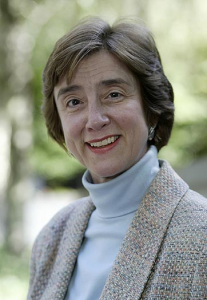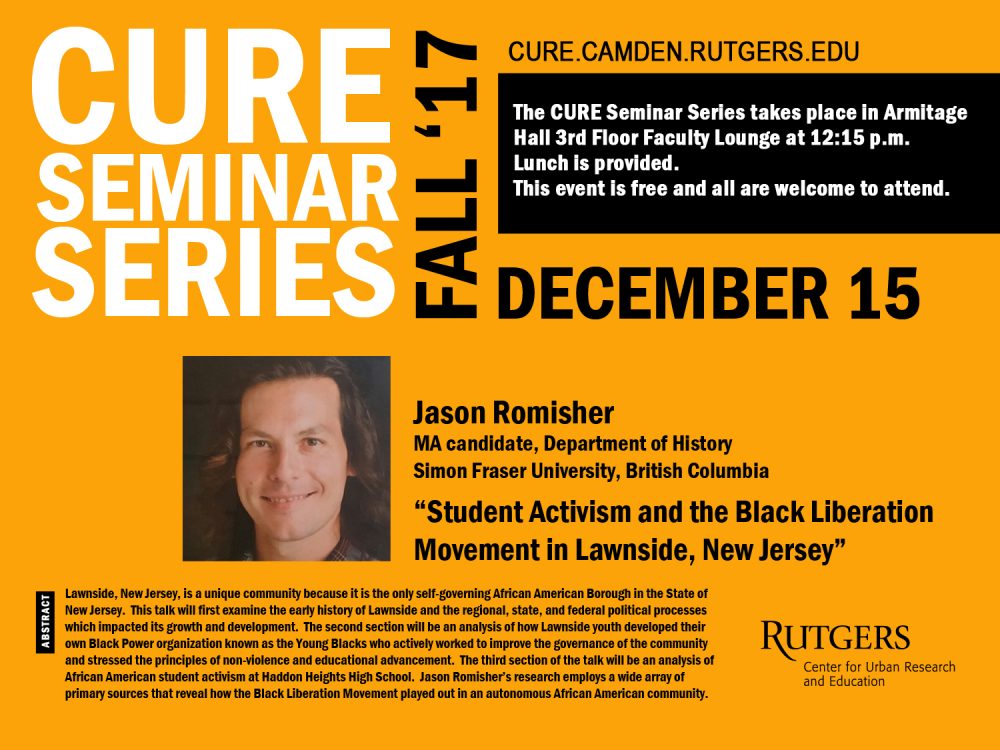 Lawnside, New Jersey, is a unique community because it is the only self-governing African American Borough in the State of New Jersey. This talk will first examine the early history of Lawnside and the regional, state, and federal political processes which impacted its growth and development. The second section will be an analysis of how Lawnside youth developed their own Black Power organization known as the Young Blacks who actively worked to improve the governance of the community and stressed the principles of non-violence and educational advancement. The third section of the talk will be an analysis of African American student activism at Haddon Heights High School. Jason Romisher’s research employs a wide array of primary sources that reveal how the Black Liberation Movement played out in an autonomous African American community.
Lawnside, New Jersey, is a unique community because it is the only self-governing African American Borough in the State of New Jersey. This talk will first examine the early history of Lawnside and the regional, state, and federal political processes which impacted its growth and development. The second section will be an analysis of how Lawnside youth developed their own Black Power organization known as the Young Blacks who actively worked to improve the governance of the community and stressed the principles of non-violence and educational advancement. The third section of the talk will be an analysis of African American student activism at Haddon Heights High School. Jason Romisher’s research employs a wide array of primary sources that reveal how the Black Liberation Movement played out in an autonomous African American community.
Tag: seminars
CURE Seminar Series: “On the Political Meanings of the Transformation of Property and Ownership in the United States,” with James DeFilippis
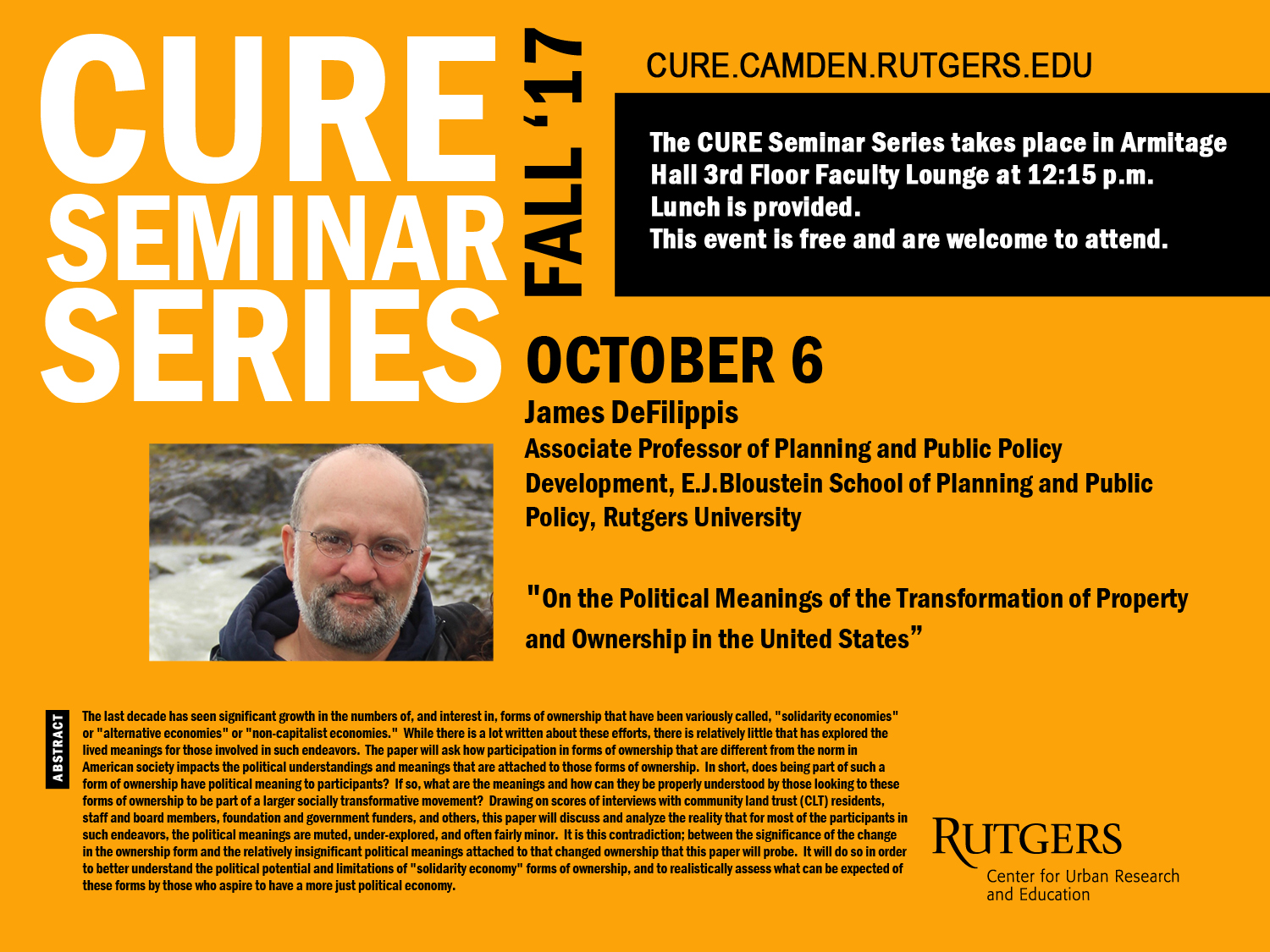
The last decade has seen significant growth in the numbers of, and interest in, forms of ownership that have been variously called, “solidarity economies” or “alternative economies” or “non-capitalist economies.” While there is a lot written about these efforts, there is relatively little that has explored the lived meanings for those involved in such endeavors. The paper will ask how participation in forms of ownership that are different from the norm in American society impacts the political understandings and meanings that are attached to those forms of ownership. In short, does being part of such a form of ownership have political meaning to participants? If so, what are the meanings and how can they be properly understood by those looking to these forms of ownership to be part of a larger socially transformative movement? Drawing on scores of interviews with community land trust (CLT) residents, staff and board members, foundation and government funders, and others, this paper will discuss and analyze the reality that for most of the participants in such endeavors, the political meanings are muted, under-explored, and often fairly minor. It is this contradiction; between the significance of the change in the ownership form and the relatively insignificant political meanings attached to that changed ownership that this paper will probe. It will do so in order to better understand the political potential and limitations of “solidarity economy” forms of ownership, and to realistically assess what can be expected of these forms by those who aspire to have a more just political economy.
CURE Seminar Series: Social Enterprise: Examining the Quest to Humanize Business
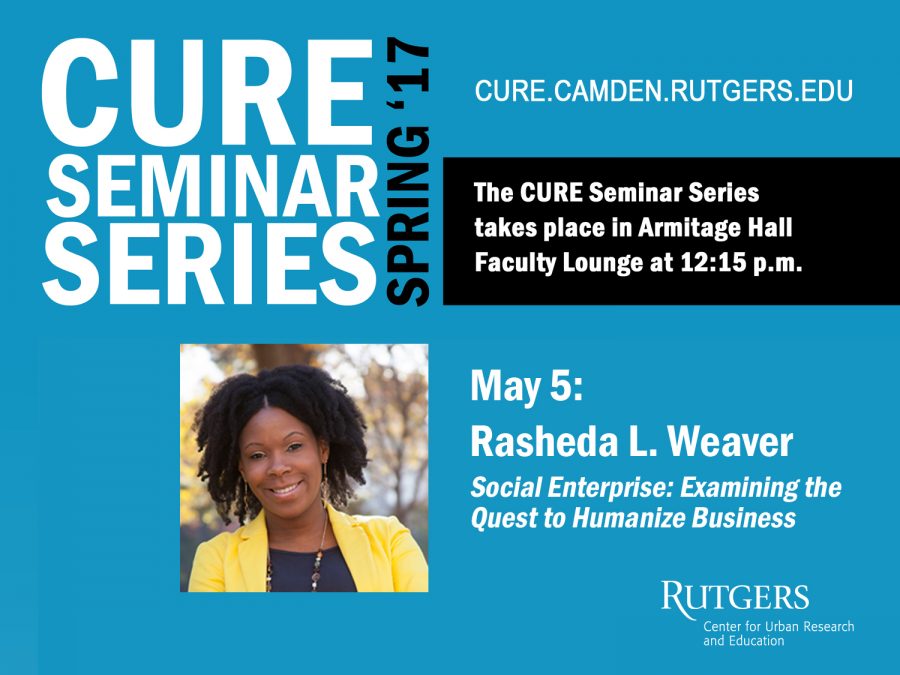 Social enterprises are businesses that utilize their revenue to combat social problems. Since the millennium, social enterprises have significantly grown throughout the United States. This talk will focus on Doctoral Candidate Rasheda L. Weaver’s empirical research study of 115 social enterprises throughout the nation. The discussion will describe the social issues social enterprises target, how they generate revenue, the laws they incorporate under, and the contexts in which they develop.
Social enterprises are businesses that utilize their revenue to combat social problems. Since the millennium, social enterprises have significantly grown throughout the United States. This talk will focus on Doctoral Candidate Rasheda L. Weaver’s empirical research study of 115 social enterprises throughout the nation. The discussion will describe the social issues social enterprises target, how they generate revenue, the laws they incorporate under, and the contexts in which they develop.
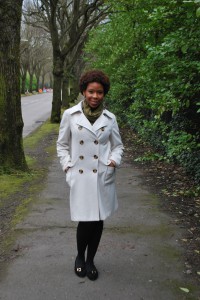 Rasheda L. Weaver is a fourth-year PhD candidate in the Public Affairs program at Rutgers University-Camden that will graduate in May 2017. Her research interests include social entrepreneurship, community development, and applied psychology.
Rasheda L. Weaver is a fourth-year PhD candidate in the Public Affairs program at Rutgers University-Camden that will graduate in May 2017. Her research interests include social entrepreneurship, community development, and applied psychology.
This event is FREE and open to the public.
Lunch will be provided.
Next CURE seminar: Dr. Carolyn Adams, Temple University – Friday, January 29, 2016
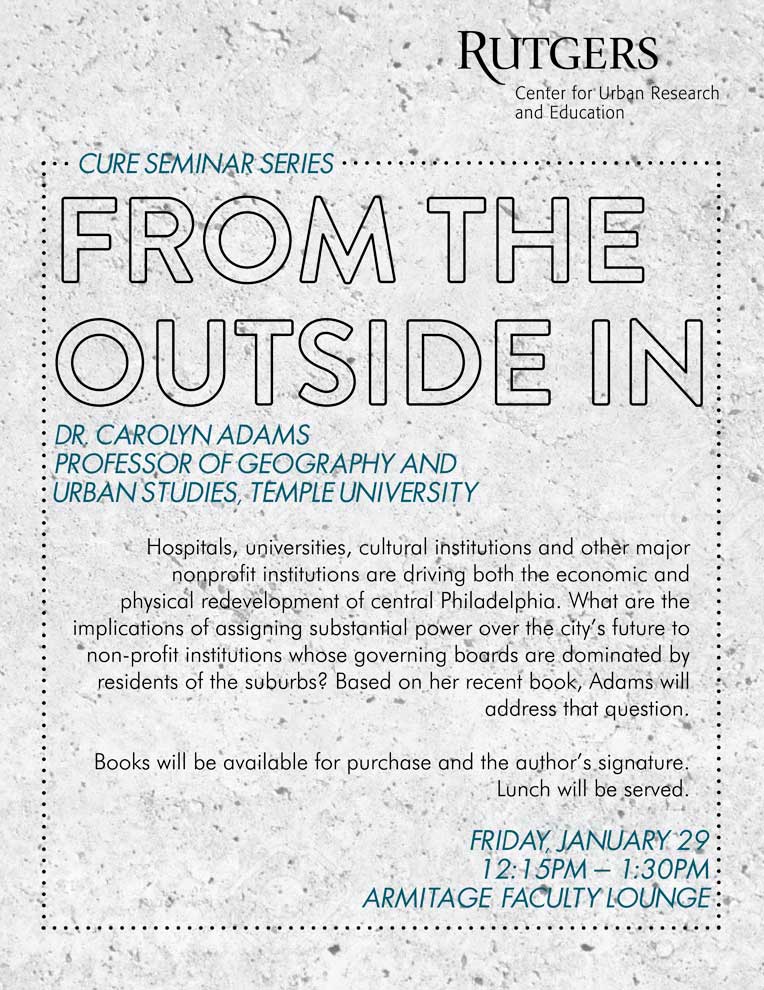 Please join us for our next seminar and book-signing event:
Please join us for our next seminar and book-signing event:
“From the Outside In”
Dr. Carolyn Adams
Professor of Geography and Urban Studies,C
Temple University
Friday, January 29, 2016
12:15pm – 1:30pm
Faculty Lounge, 3rd Floor Armitage Hall
Lunch will be served
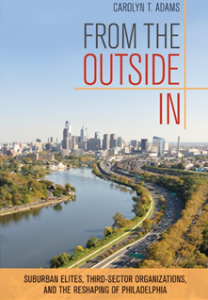
Hospitals, universities, cultural institutions and other major nonprofit institutions are driving both the economic and physical redevelopment of central Philadelphia. What are the implications of assigning substantial power over the city’s future to nonprofit institutions whose governing boards are dominated by residents of the suburbs? Based on her recent book, Adams will address that question.
Books will be available for purchase and the author’s signature.
~~~~~~~~~~~~~~~~~~~~~~~~~~~~~~~~~~~~~~~~~~~~~~~~~~~~~~
CURE seminars are free and open to the public. No registration is required.
Visitor Parking
Parking in Rutgers–Camden lots is by permit only. Visitors to Rutgers–Camden should obtain atemporary permit to park in a lot from 8 a.m. Mondays through 5 p.m. Fridays.? Contact Parking and Transportation for more information.?
Parking and Transportation
(within the Rutgers University Police Department)?
409 North Fourth Street?
856-225-6137
?Please visit these sites for directions to campus and to view a campus map

